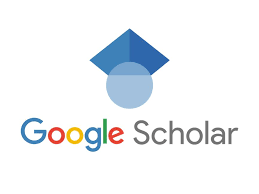Blended Learning Approaches for Teaching Thai in Universities: A Path to Enhanced Language Proficiency
คำสำคัญ:
Blended learning, Thai language teaching, higher education, language proficiency, curriculum integrationบทคัดย่อ
This paper explores the implementation of blended learning approaches in Thai language teaching at the university level as a means to enhance language proficiency. Traditional methods of Thai language instruction, which emphasize rote learning and lecture-based teaching, often fail to adequately develop practical language skills, particularly in speaking and listening. Blended learning, which combines online and face-to-face instruction, offers a more interactive and student-centered approach. Through a review of current methodologies, case studies, and assessment strategies, this paper highlights the potential of blended learning to improve student engagement, language proficiency, and retention. The findings suggest that blended learning not only addresses the gaps in traditional instruction but also fosters learner autonomy, critical thinking, and long-term language retention. Recommendations for educators and policymakers are provided to support the integration of blended learning into Thai language curricula, along with practical strategies for its effective implementation.
เอกสารอ้างอิง
Bishop, J. L., & Verleger, M. A. (2013). The flipped classroom: A survey of the research. ASEE National Conference Proceedings, 30(9), 1-18.
Chinpakdee, N. (2020). Traditional methods in Thai language teaching: Challenges and alternatives. Journal of Thai Language and Culture, 15(1), 45-57.
Dziuban, C., Graham, C. R., Moskal, P. D., Norberg, A., & Sicilia, N. (2018). Blended learning: The new normal and emerging technologies. International Journal of Educational Technology in Higher Education, 15(1), 3-15.
Garrison, D. R., & Kanuka, H. (2004). Blended learning: Uncovering its transformative potential in higher education. Internet and Higher Education, 7(2), 95-105.
Garrison, D. R., & Vaughan, N. D. (2008). Blended learning in higher education: Framework, principles, and guidelines. John Wiley & Sons.
Graham, C. R. (2019). Blended learning models. In M. G. Moore (Ed.), Handbook of Distance Education (4th ed.). Routledge.
Horn, M. B., & Staker, H. (2014). Blended: Using disruptive innovation to improve schools. Jossey-Bass.
Kaewkla, C. (2021). Rethinking Thai language education: A shift toward active learning. International Journal of Language Studies, 12(3), 89-102.
Klongwattana, P., & Wongwanich, S. (2021). Teacher development for effective Thai language teaching. Journal of Education, 45(2), 100-118.
Pannarunothai, S., Wonglaparat, W., & Laiphruek, K. (2020). The impact of blended learning on Thai university students’ language proficiency. Asian Journal of Educational Research, 9(3), 45-58.
Poon, J. (2013). Blended learning: An institutional approach for enhancing students' learning experiences. Journal of Online Learning and Teaching, 9(2), 271-288.
Rattanavich, S. (2018). Assessing language proficiency in higher education: A focus on communicative skills. Language Testing Quarterly, 5(4), 33-45.
Rungwaran, P. (2019). Reforming Thai language teaching for the 21st century: A critical perspective. Journal of Language Education, 6(1), 15-30.
Sangsiri, S. (2022). The role of language proficiency in academic success among Thai university students. Journal of Higher Education, 14(1), 85-102.
Staker, H., & Horn, M. B. (2012). Classifying K–12 blended learning. Innosight Institute.
Suwannatrai, P., & Chumchon, S. (2021). Language proficiency and professional communication skills: A study of Thai university students. Journal of Communication Studies, 7(4), 54-68.
Vaughan, N. D. (2014). Student engagement and blended learning: Making the assessment connection. Education Sciences, 4(4), 247-264.
Wongchantra, P. (2020). Integrating technology into Thai language instruction: Opportunities and obstacles. Journal of Educational Innovation, 13(1), 78-91.
Wongsothorn, T. (2020). The future of Thai language education: Challenges and opportunities. Journal of Thai Language and Culture, 22(3), 67-79.







